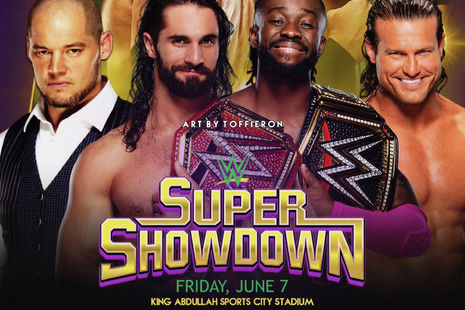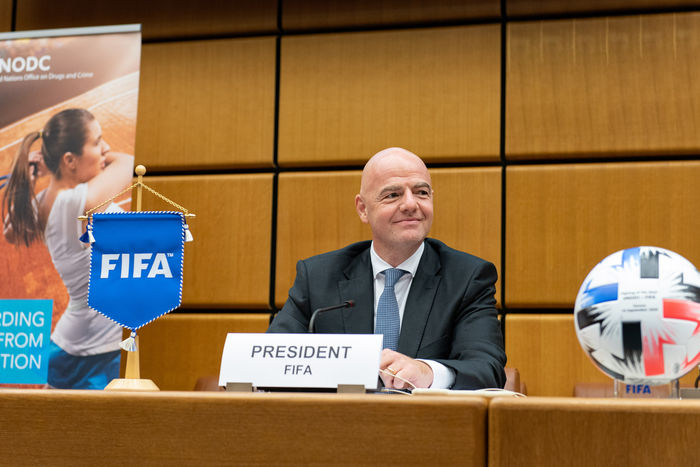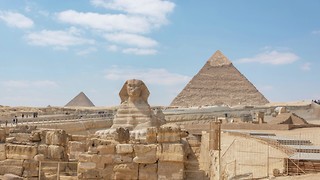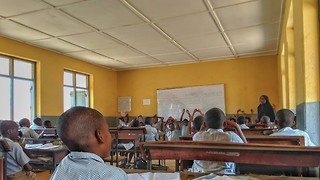Wrestlemania in Saudi Arabia: how did we get here?
Josh Pritchard on why sportswashing doesn’t shock him anymore – WWE taught him to ignore it

In 2018, the WWE, under the leadership of Vince McMahon, signed a ten-year partnership with the Saudi Arabian Ministry of Sport, agreeing to hold a series of pay-per-view and livestreaming events emanating from the Middle Eastern country. Fast forward 7 years – and many scandals later – and they’ve done it. WWE is sending its premier event, ‘Wrestlemania’, to Saudi Arabia.
Pro wrestlers play heroes. But sometimes, they are cowards. Following this announcement, Bianca Belair, one of the company’s premier female athletes, told the press: “I think Saudi Arabia has become a space, specifically for women, to make amazing moments and make history […] and every time we go […] I see it evolve more and more.” Citing the increased presence of women on billboards, posters and in matches, Belair’s answer continued in the company’s tradition of placing itself at the forefront of progressivism in the Middle East – this is not hyperbole.
“Pro wrestlers play heroes. But sometimes they are cowards”
Paul ‘Triple H’ Levesque, WWE’s now-Chief Content Officer, stated to The Independent in 2018 at the time of the original deal: “I understand that people are questioning it, but you have to understand that every culture is different […] you can’t dictate to a country or a religion about how they handle things, but having said that, WWE is at the forefront of a women’s evolution in the world and what you can’t do is affect change anywhere by staying away from it.” Mr Levesque, presently responsible for WWE’s booking operations, is now overseeing the company at a moment where Brock Lesnar has returned to television whilst facing allegations in a sex-trafficking lawsuit that also names Vince McMahon.
Pro wrestling as a medium has not shied away from sportswashing. Its most attended event in history is World Championship Wrestling’s ‘Collision in Korea’, which allegedly had over 190,000 attendees. Serving as a political manoeuvre for the North Korean regime, officials requested the loser of the night’s main event, Ric Flair, to read a statement claiming that the country’s government could dominate the United States. Flair, a man who made his name strutting for spare change, refused.
“America’s relationship with professional wrestling has become more polluted than it already was”
In 2020, Phil Brooks – a.k.a CM Punk – who left WWE amidst a whirlwind of controversy in 2014, responded to former colleague Mike ‘The Miz’ Mizanin in a spar on Twitter: “Go suck a blood money-covered dick in Saudi Arabia, you f*cking dork.” Cut to the present day where Brooks – having returned to his former employer – apologised for the tweet to a crowd of Saudi onlookers, in the true essence of punk.
To pretend that these figures are not shielded by their platforms is pathetic. Returning to Belair, the SmackDown star was pictured in revealing swimwear at a private beach, alongside other female wrestlers in a 2024 post on the WWE’s Instagram page with the caption: “WWE Superstars are having fun in the sun at @oiabeach in Jeddah, Saudi Arabia.” Manahel al-Otaibi, a 29-year-old Saudi activist sentenced to 11 years in prison just three weeks prior because of her choice of clothing, was surely kicking herself at doing so in the wrong place.
“Calls for boycotts over this arrangement have progressively died down. Such is the aim of sportswashing”
This is not a piece intended to remind you of the human rights abuses the Saudi Arabian government has and continues to commit. Rather, this is an illustration of the extent to which corporatism and financial incentive can go towards hiding it. Even in instances where the WWE’s relationship with Saudi Arabia has resulted in active danger to their wrestlers, it has not brought about a change in policy or commitment towards this relationship, nor resulted in upfront conversations about the ethics of the partnership. This is, after all, the company that still honoured their arrangement in the aftermath of Jamal Khashoggi’s death. Even among the wrestling community at large, calls for boycotts over this arrangement have progressively died down. Such is the aim of sportswashing.
The decision to host the first international Wrestlemania in Saudi Arabia carries a wide range of consequences. It curtails the customary surge in local independent wrestling, restricts female journalists from attending, and forces cities to weigh the reputational implications of bidding to host the event in the future. It is deeply alarming to see how America’s relationship with professional wrestling has become more polluted than it already was.
Beyond the issues already mentioned, WWE has cemented itself as a vehicle of influence. Its endorsement of Robert F. Kennedy Jr’s health policies, its public rehabilitation of criminals, and its increasingly overt political maneuvering have contributed to the genre’s penchant for absurd theatricality seeping into American politics. One might say the level of cowardice, corruption and misdeeds now prevalent in the United States are unprecedented. But that would be misleading. Professional wrestling did it first.
 News / Oxbridge miss out on top 3 in university rankings for first time19 September 2025
News / Oxbridge miss out on top 3 in university rankings for first time19 September 2025 Features / Cambridge SU: has-been or never-was?16 September 2025
Features / Cambridge SU: has-been or never-was?16 September 2025 Comment / Dear finalists, please have fun19 September 2025
Comment / Dear finalists, please have fun19 September 2025 Arts / A walking tour of Art Deco Cambridge16 September 2025
Arts / A walking tour of Art Deco Cambridge16 September 2025 News / Ludwig filming returns to Cambridge17 September 2025
News / Ludwig filming returns to Cambridge17 September 2025










